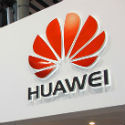
Also in today's EMEA regional roundup: Vodafone warns on rip-and-replace costs; FTTH Council Europe formulates to-do list; virtual healthcare app needs treatment.
NATO Secretary General Jens Stoltenberg has entered the UK's Huaweigate fray, telling BBC radio that the government is right to review the role of the Chinese vendor in the rollout of the country's 5G networks. "I trust that the UK government will design their networks in ways that protect the networks and make sure that the UK has secure 5G networks," said Stoltenberg, in a Reuters report on the interview. The UK's National Cyber Security Centre is currently carrying out such a review, with many industry observers believing it may presage a government U-turn on Huawei. As things stand, Huawei is being allowed a limited role in the UK's 5G rollout, its gear restricted to 35% of total infrastructure outside the "core." (See Eurobites: Is a Huawei handbrake-turn ahead for UK? and Huawei befuddled by reports of total 5G ban in UK.)
In related matters, Vodafone UK's chief technology officer, Scott Petty, has been reiterating his company's view that forcing UK operators to rip and replace their existing Huawei gear could set back the country's 5G industry considerably. In an email to Reuters, Petty said: "The UK’s leadership in 5G will be lost if mobile operators are forced to spend time and money replacing existing equipment … We are not tied to one supplier, but it is important to understand the extent of what is at stake here."
The FTTH Council Europe used its first virtual General Assembly on Tuesday to set out its work program for the foreseeable future, committing to further investigate how fiber networks can contribute to a "greener economy," an update to its study into fiber/5G network convergence and a probe into the thorny issue of misleading fiber-broadband advertising – an area in which the industry has done itself few favors. The Council also elected itself a new president: Nokia's Eric Festraets.
Nurse! The screens! London-based Babylon Health has been forced to apologize after users of its doctors' appointment app were able to access recordings of other patients' consultations. As the Telegraph reports, one user, who was only checking a prescription, found himself presented with around 50 videos of other people discussing their ailments in the "Consultation Replay" section of the app. Babylon Health says it has now fixed the problem.
The GSMA is planning to lay off around 20% of its workforce, largely as a result of the coronavirus-related cancellation of this year's Mobile World Congress, which put a massive dent in its finances. For more details, see this story on our sister site, Telecoms.com.
UK IoT specialist Truphone is to provide its SIM technology to Minnesota-based Digi-Key Electronics to allow it to offer cellular IoT connectivity services to manufacturers worldwide. The Truphone network supports 2G, 3G, 4G and CAT-M1/LTE-M – all with a single SIM card – and gives every customer access to its IoT Connectivity Management platform.
France-based Ateme has partnered with SES, VideoLabs and IETR for what it says is the first live, end-to-end UHD satellite broadcast transmission using the new Versatile Video Coding (VVC) standard. The test transmission has been launched on SES' 28.2° East orbital position carrying a UHD (4K) video stream using the VVC standard, which is intended to optimize bandwidth efficiency and improve the user's "quality of experience."
Sparkle, the international services arm of Telecom Italia, has added a new point of presence in Rome to boost the Eternal City's connectivity needs. The PoP is located in the eastern part of the city, at Tecnopolo Tiburtino.
In other PoP life, NetIX has improved its presence in Madrid, upgrading its Interxion MAD1/MAD2 hardware and improving its network topology to increase network resiliency. The Spanish capital is now connected via two NetIX routes.
Dublin-based Openet has launched the latest version of its 5G policy controller. OPC 2.0, a multicloud affair, is available on AWS and Microsoft Azure public, hybrid and private cloud.
BT has joined the i3forum, a nonprofit industry body which, in its own words, "brings together the international carrier ecosystem to enable and accelerate transformation." It is expected that BT will join industry workgroups focusing on, among other things, the fight against voice and messaging fraud.
— Paul Rainford, Assistant Editor, Europe, Light Reading
About the Author(s)
You May Also Like












